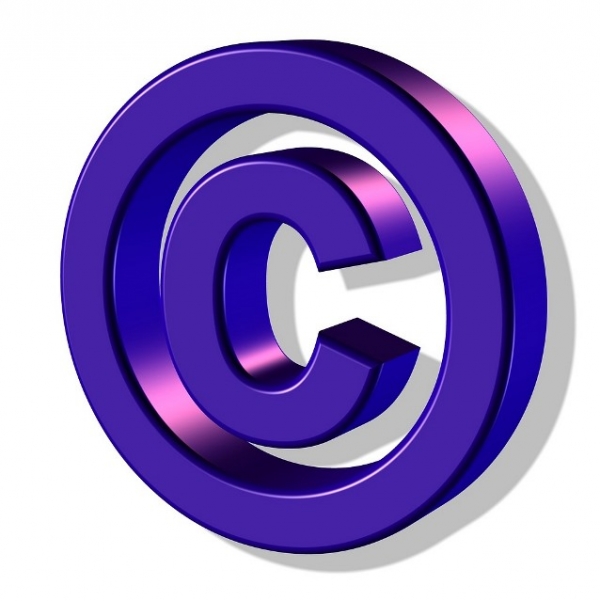Copyright bill will empower blind people

Just over two years after the books for the blind treaty was signed in Marrakesh, Morocco, South Africa has finally taken steps toward ratifying the treaty.
On 27 July a draft bill was published in the Government Gazette that will affect all South Africans to some extent. The Copyright Amendment Bill of 2015 will overhaul the way copyright is dealt with in South African law. It has implications for how we use the internet, for what we’re allowed to do with our digital purchases, for broadcasting, for how musicians are paid, and even for the resale of crafts. It is of some concern that there has not been much public discussion of the bill.
Amidst all the proposed changes, the bill introduces a relatively short section (19.D) on copyright exceptions for blind and other print handicapped people. Short as it is, this section of the bill represents one of the most significant steps our government has taken to empower blind people in recent years. If section 19.D makes it through the parliamentary process unscathed, blind people in South Africa will soon be better off in some very clear and tangible ways.
Just over two years ago on 28 June 2013 the Marrakesh treaty was concluded in Morocco. The treaty created copyright exceptions for the benefit of blind people. In essence, these exceptions mean that normal copyright law does not apply in certain cases relating to blind people. Most importantly, the treaty will allow for the reformatting and copying of books for the benefit of blind people, without having to check first with copyright holders. It will also allow for books in forms accessible to blind people to be sent across national borders – for example from large accessible book archives in the United States to blind students in South Africa.
Most books today exist somewhere in an electronic format. Yet, blind students often struggle to get hold of accessible format books required for study – which makes an already hard educational experience even more difficult. Depending on where in the world you are, it is estimated that blind people only have access to between one and seven percent of the books that people with normal eyesight have access to. It is what the World Blind Union rightfully calls a book famine. Apart from its impact on education and work, the book famine also limits the ability of blind people to be included in the cultural life of the societies they live in.
The Marrakesh treaty represents the most tangible progress made so far in bringing an end to the book famine. But, change does not come over night. The treaty will only come into force three months after it has been ratified by 20 countries (we are currently on eight), and even once in affect, only blind people in countries that have ratified will benefit from the treaty. This is why the World Blind Union is lobbying governments all over the world to hasten the ratification of the treaty. Until the publication of the Copyright Amendment Bill one may have been forgiven for thinking that South Africa was dragging its feet. But section 19.D has shown sceptics like myself to be wrong. If things go smoothly, South Africa may even be one of the first 20 countries to ratify.
Other good news in the bill includes the introduction of copyright exceptions for education and libraries (much like those for disabled persons) and new “fair use” provisions based on fair use provisions in United States law. All these provisions suggest that the Department of Trade and Industry is serious about ensuring that our copyright laws create a better balance between the interests of copyright holders and the rights of users – which is good news if you are blind, go to a poorly resourced school, or if you can’t afford books and are dependent on libraries.
Even with these progressive provisions, nothing in this bill poses a realistic threat to creators continuing to benefit from there creations. You will still be able to copyright your creations and charge what you want for it. Even so, various industry representatives and their lawyers will no doubt pretend that copyright is about to be broken and that the sky is about to fall in. It isn’t — as evidenced in other countries with similar provisions. That said, there are some provisions in the bill that do require serious scrutiny — such as potential prison sentences for stripping encryption from DRM-protected e-books.
While public engagement with the bill has been limited, it is encouraging that the Department of Trade and Industry has arranged a number of consultations with industry and other stakeholders. They have also extended the deadline for public comment from 26 October to 16 September.
As with most law-making processes though , it is not a good idea to leave this process just to industry and the obvious “stakeholders”. As someone with poor eyesight, this bill and its section 19D impact me directly, but as a person who reads a GroundUp article on a computer or a phone it will also impact you.
The bill can be read here.
Low is head of policy at the Treatment Action Campaign. He writes in his personal capacity. Views expressed are not necessarily GroundUp’s.
Support independent journalism
Donate using Payfast

Don't miss out on the latest news
We respect your privacy, and promise we won't spam you.
Next: Court victory vindicates shack dwellers’ rights
Previous: We will not be silent on crime, say Khayelitsha organisations

This article is licensed under a Creative Commons Attribution-NoDerivatives 4.0 International License.
